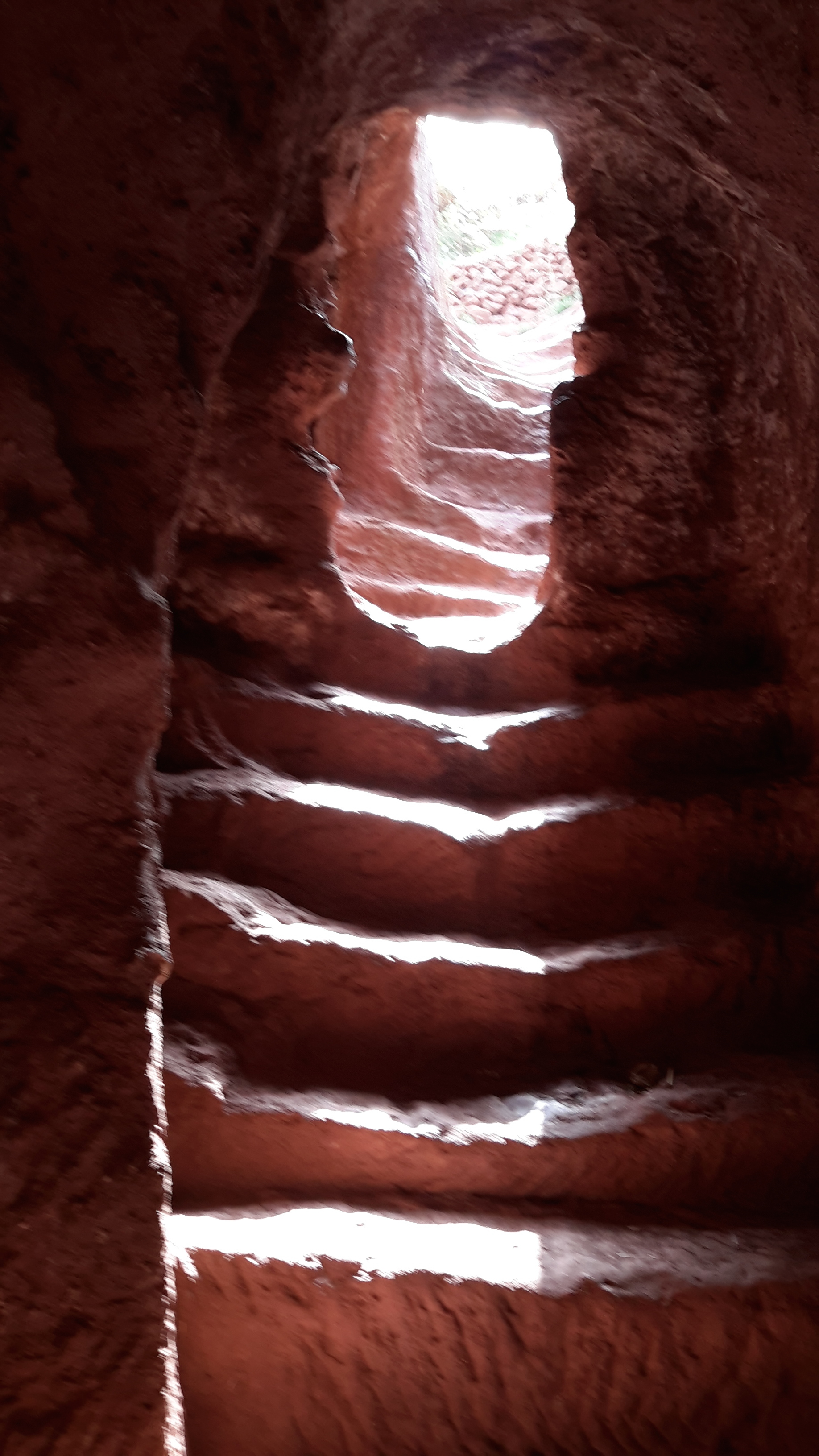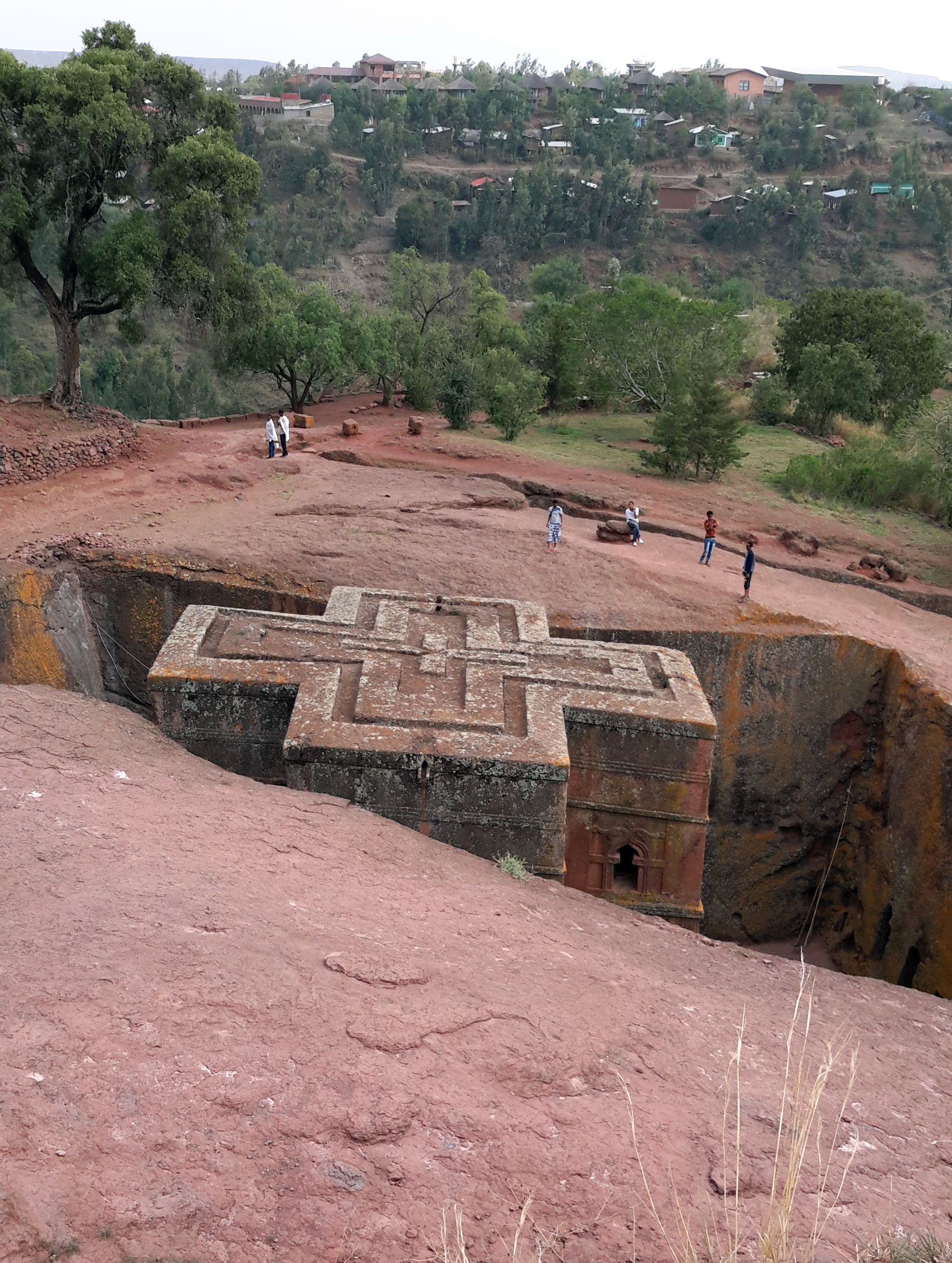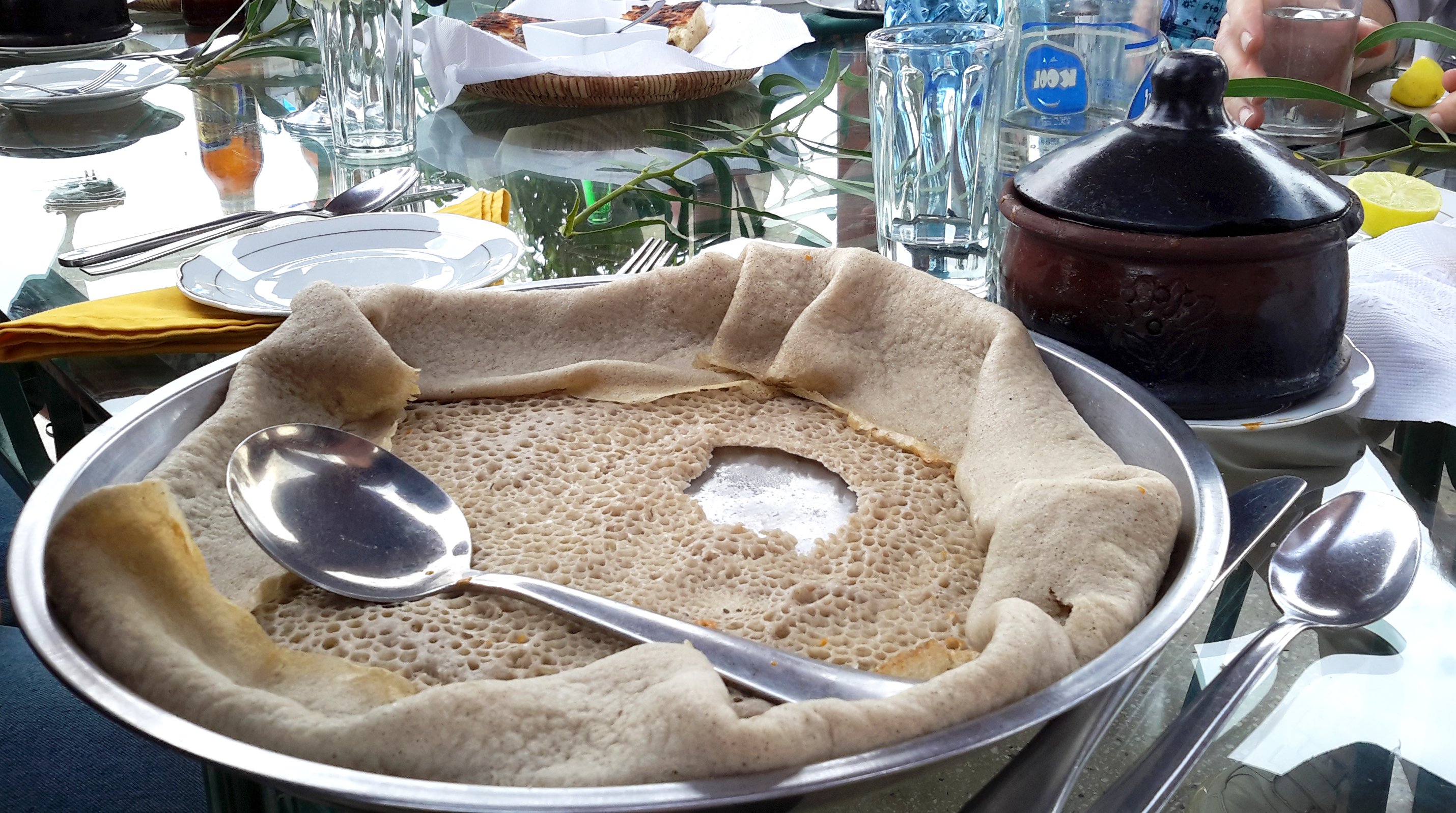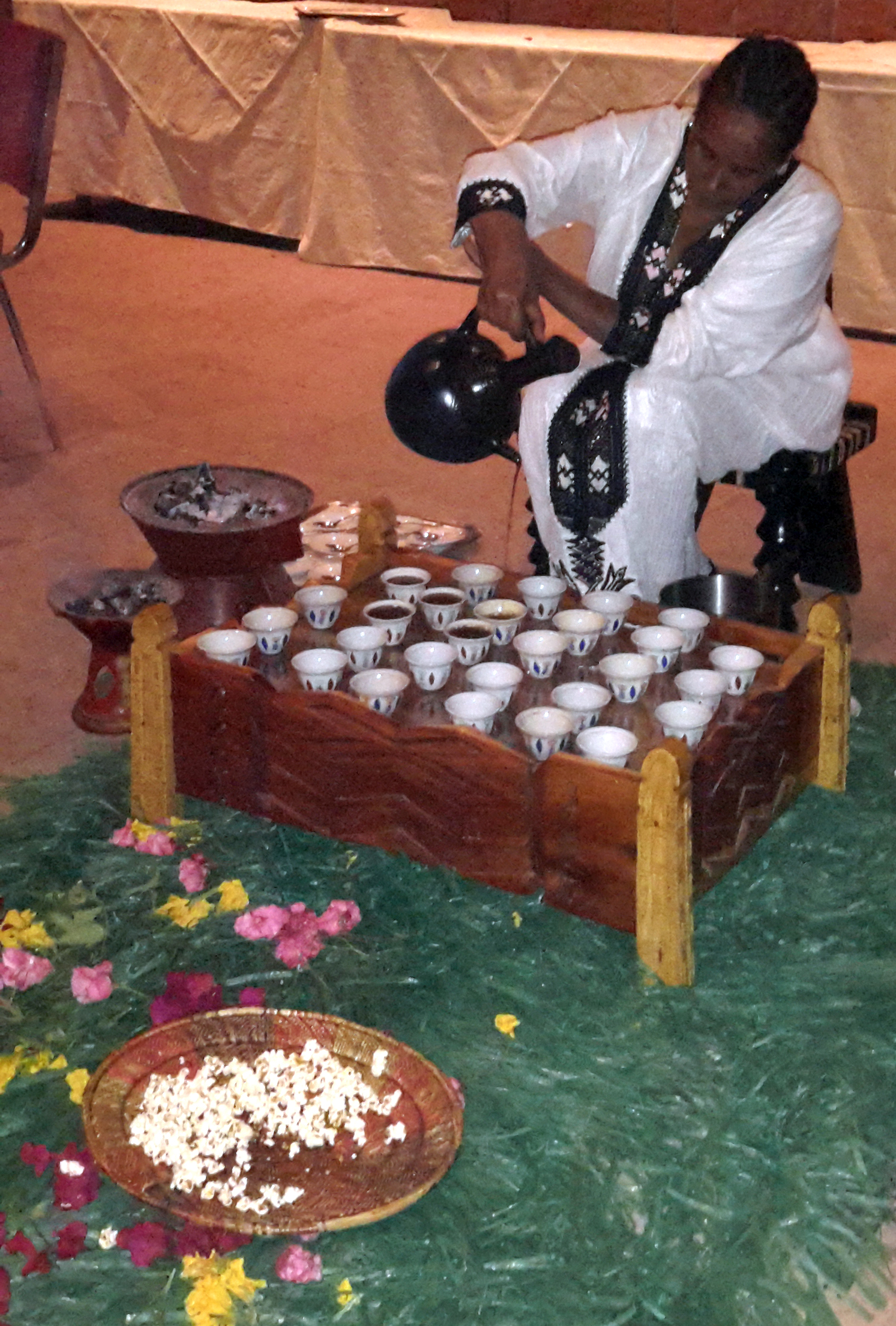|
Today, the Water to Thrive team traveled to Lalibela, Ethiopia. Lalibela is a World Heritage Site that some consider the eighth wonder of the world because of the ancient stone churches carved completely out of a single piece of volcanic rock. The 11 churches were built over 23 years during the 12th century at the command of King Lalibela. The king wanted to give Christians an alternative to traveling to Jerusalem, and he recognized it would put him in favor with the Church. The churches are still worshipped in today and to visit, you simply follow a guide through narrow tunnels down rock-hewn steps. The monolithic churches were carved from the top down using simple hand tools. After the outside of the church was completed, work began on the inside, working from the bottom to the top.
The town of Lalibela is located in northwest Ethiopia. Most of the populace is subsistence farmers who raise teff (a grain), sorghum, and maize. Teff, the mainstay crop, is used for making injera, a spongey bread used with the right hand to scoop up individual portions of a meal. Teff is gaining attention worldwide, as it is extremely rich in protein and is gaining recognition as a super food.
To close out the day, the team was treated to a special coffee ceremony. The legend about the discovery of coffee follows a goat herder. The herder observed his goats acting energetically after eating the berries of a plant, which led him to roast the berries and create coffee. The official coffee ceremony includes burning of frankincense and roasting the berries over an open flame. The first pour off the beans is called the abol and is the most concentrated. The second pour is the tona and the last is the bereka. Often snacks such as popcorn or roasted barley are served with the coffee.
Tomorrow we will be in Axum preparing to visit our projects around the area. |
|
Today, the Water to Thrive team traveled to Lalibela, Ethiopia. Lalibela is a World Heritage Site that some consider the eighth wonder of the world because of the ancient stone churches carved completely out of a single piece of volcanic rock. The 11 churches were built over 23 years during the 12th century at the command of King Lalibela. The king wanted to give Christians an alternative to traveling to Jerusalem, and he recognized it would put him in favor with the Church. The churches are still worshipped in today and to visit, you simply follow a guide through narrow tunnels down rock-hewn steps. The monolithic churches were carved from the top down using simple hand tools. After the outside of the church was completed, work began on the inside, working from the bottom to the top.
The town of Lalibela is located in northwest Ethiopia. Most of the populace is subsistence farmers who raise teff (a grain), sorghum, and maize. Teff, the mainstay crop, is used for making injera, a spongey bread used with the right hand to scoop up individual portions of a meal. Teff is gaining attention worldwide, as it is extremely rich in protein and is gaining recognition as a super food.
To close out the day, the team was treated to a special coffee ceremony. The legend about the discovery of coffee follows a goat herder. The herder observed his goats acting energetically after eating the berries of a plant, which led him to roast the berries and create coffee. The official coffee ceremony includes burning of frankincense and roasting the berries over an open flame. The first pour off the beans is called the abol and is the most concentrated. The second pour is the tona and the last is the bereka. Often snacks such as popcorn or roasted barley are served with the coffee.
Tomorrow we will be in Axum preparing to visit our projects around the area. |





About The Author: Water to Thrive
More posts by Water to Thrive